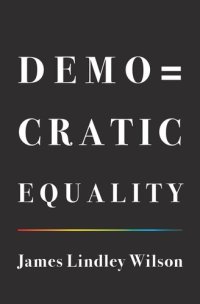
Ebook: Democratic Equality
Author: James Lindley Wilson
- Year: 2019
- Publisher: Princeton University Press
- Language: English
- pdf
A novel defense of the moral foundations of democracy and the central role equality plays in its practice.
Democracy establishes relationships of political equality, ones in which citizens equally share authority over what they do together and respect each other as equals. But in today's divided public square, democracy is challenged by political thinkers who disagree about how democratic institutions should be organized, and by antidemocratic politicians who exploit uncertainties about what democracy requires and why it matters. Democratic Equality mounts a bold and persuasive defense of democracy as a way of making collective decisions, showing how equality of authority is essential to relating equally as citizens.
James Lindley Wilson explains why the U.S. Senate and Electoral College are urgently in need of reform, why proportional representation is not a universal requirement of democracy, how to identify racial vote dilution and gerrymandering in electoral districting, how to respond to threats to democracy posed by wealth inequality, and how judicial review could be more compatible with the democratic ideal. What emerges is an emphatic call to action to reinvigorate our ailing democracies, and a road map for widespread institutional reform.
Democratic Equality highlights the importance of diverse forms of authority in democratic deliberation and electoral and representative processes—and demonstrates how that authority rests equally with each citizen in a democracy.